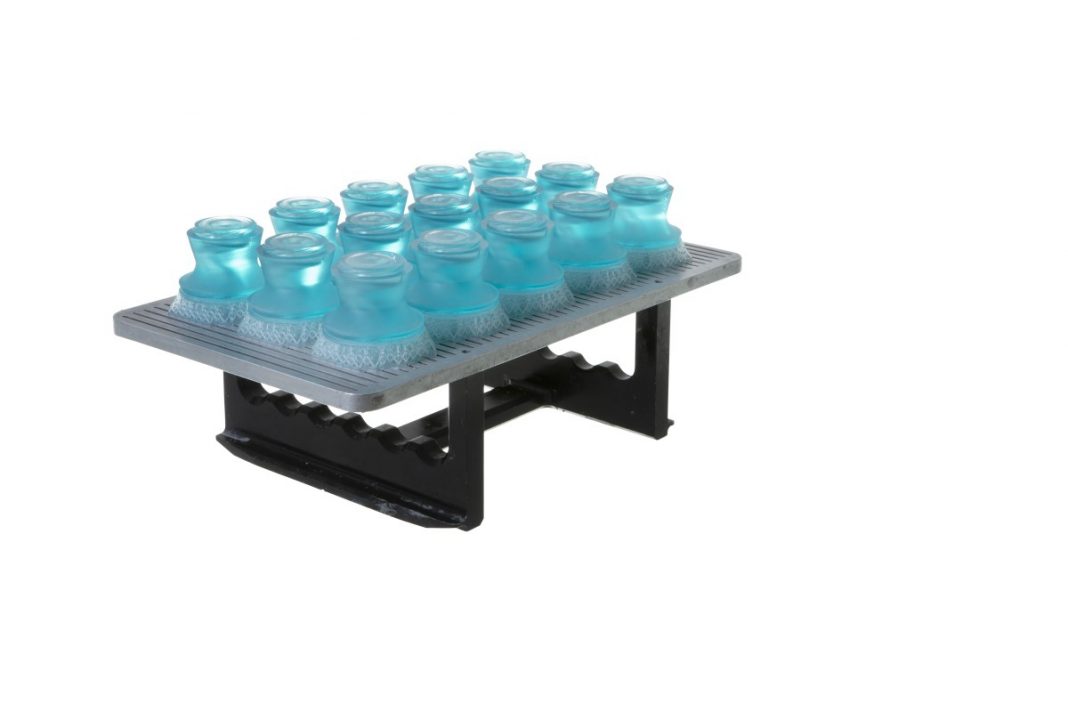Nexa3D, the maker of ultrafast polymer 3D printers, today announced that it partnered with functional polymers leader Henkel to produce the world’s first additively manufactured connected SKOP stethoscope for WeMed.
Based on biomimicry design and produced on the NXE400 ultrafast 3D printer using performance-matched Henkel materials, the WeMed SKOP is the world’s first connected stethoscope to be additively manufactured in its entirety at scale with production volumes to exceed 100,000 units per annum. Nexa3D will be showcasing SKOP at RAPID + TCT 2021, from September 13 to 15 at McCormick Place, Chicago, on booth E7428.
Born during the COVID-19 health crisis, French start-up, WeMed saw an opportunity to quickly respond to accelerating demand for new diagnostic medical devices that support teleconsulting and remote monitoring. Nexa3D and Henkel came together with French contract manufacturing provider Third, to help WeMed develop, manufacture and launch its new product.
The SKOP is a medical device for remote auscultation. It provides excellent listening quality, essential for emergency situations and for isolated patients. SKOP takes inspiration from nature, using a biomimetic design based on the human ear to maximize performance. The SKOP geometry can only be additively manufactured using ultrafast 3D printing.
“We developed the SKOP in response to a global call for democratized, affordable tele-consulting healthcare solutions,” said Cyrille Lecroq, co-founder and CEO of WeMed. “From the get-go, it was obvious to us, that our biomimicry design, could only be manufactured using 3D printing. Together with our additive manufacturing expert partner, Third, we selected Nexa3D’s ultrafast 3D printers with Henkel’s customized materials as the best production solution to meet our productivity, reproducibility, precision, and cost requirements, so that we can quickly and deliver hundreds of thousands of SKOPs to waiting customers around the world.”
“This project highlights the inherent advantages of our ultrafast additive manufacturing capabilities,” explained Kevin McAlea, COO of Nexa3D. “The ability to perform rapid design iterations and design-based materials performance and color optimization, without any traditional manufacturing design constraints was essential to bringing this game-changing product to market quickly.
“Our printers were selected not only for the ability to produce high quality parts, but for the speed and significant economic advantage they provide,” added McAlea. “Nexa3D’s 20x productivity advantage means our customers can manufacture products at unmatched speed, helping businesses like WeMed make a real difference. Nexa3D is excited to partner with other businesses with innovative design ideas, who could benefit from a new additive manufacturing process.”
“Leveraging our expanding product development and go-to-market partnership, we quickly developed a series of manufacturing-optimized, customized colour and performance-matched materials for the SKOP in 30 days”, commented Simon Mawson, Senior Vice President, and global head of 3D printing at Henkel. “Our combined capabilities and close cooperation between Nexa3D and Henkel is open to all product companies and we invite them to work with us through every phase of their project from design, decision, support and optimization to full scale additive manufacturing operations including material formulation customization, colour matching and a variety of finishing options.”
Thanks to the speed and flexibility of the custom manufacturing solution developed jointly by Nexa3D and Henkel for WeMed, the device has already been tested and embraced as a device of choice by cardiologists, pulmonologists, general practitioners, emergency physicians and nurses. The SKOP is currently being marketed and annual production volumes are expected to exceed 100,000. With Nexa3D’s NXE400, contract manufacturer Third can produce production volumes with a 5X smaller fleet of printers, making its manufacturing more efficient and cost-effective.



